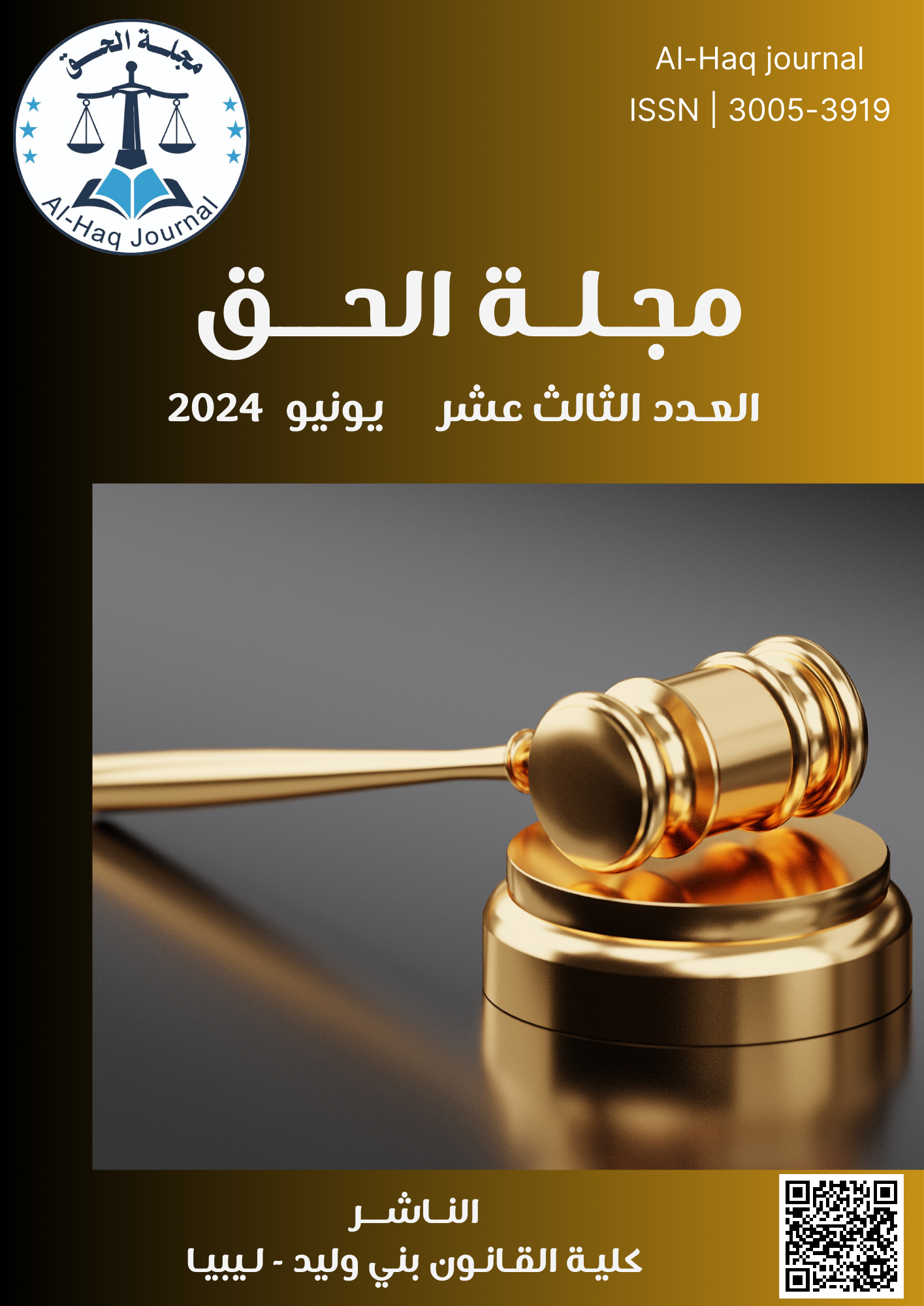Judicial oversight of legislative deviation and its role in reducing administrative corruption
DOI:
https://doi.org/10.58916/alhaq.v.i.300Keywords:
Corruption, legislative deviation, constitutional judiciary, judicial oversight, the constitutionAbstract
There is no doubt that legislative deviation is considered one of the most important and dangerous aspects of challenging unconstitutionality. When the constitution grants the legislator discretionary authority to issue legislation, he must seek the public interest and not deviate from it. Otherwise, the law becomes flawed due to the defect of legislative deviation. Legislative deviation is a hidden and concealed defect that affects the pillar of the goal for which it is intended. The legislation has been enacted and all its substantive and formal elements are met in accordance with what the law requires.
Judicial oversight of the constitutionality of laws is considered the most effective guarantee for curbing the discretionary power of the legislator and not deviating from the public interest when issuing legislation.
The importance of this oversight increases due to the difficulty of proving legislative deviation before the constitutional judiciary. It is a guarantee that confirms the principle of the supremacy and supremacy of the Constitution and protects the rights and freedoms of individuals from the arbitrariness of the legislative authority.
Downloads
References
القرآن الكريم
إبراهيم مصطفى، المعجم الوسيط، ج1، دار الدعوة للطباعة والنشر والتوزيع 1989.
ابن منظور، لسان العرب، دار المعارف، مج2، ص839.
انتصار يوسف القذافي، عيب الانحراف التشريعي في مجال القضاء الدستوري، مجلة العلوم القانونية، كلية القانون، جامعة المرقب، مج11، ع2، ديسمبر2023.
خليفة سالم الجهمي، الرقابة على دستورية القوانين، بحث منشور على شبكة المعلومات الدولية.
سعاد الشرقاوي، النظم السياسية في العالم المعاصر، دار الكتب ط1، 2007.
سليمان محمد الطماوي، لنظرية العامة للقرارات الإدارية، دار الفكر العربي ط1،1966م.
صديق سهام، الانحراف التشريعي والرقابة الدستورية عليه، مجلة الاستاذ الباحث للدراسات القانونية والسياسية مج4، ع2، 2019.
عبد الحميد متولي، القانون الدستوري والنظم السياسية، دار المعارف، ط،1967
عبد الرزاق السنهوري، مخالفة التشريع للدستور والانحراف في استعمال السلطة التشريعية، مجلة القانون والاقتصاد، كلية الحقوق، جامعة القاهرة، عدد خاص 1992.
عبد الرؤوف مصيلحي، التنظيمات السياسية، ب ت ن.
عصمت سيف الدولة، التمثيل النيابي ومشكلة الديمقراطية، دار الموقف العربي، ط1 ب.ت.ن.
كمال أبو المجد، الرقابة على دستورية القوانين في الولايات المتحدة والاقليم المصري، مكتبة النهضة المصرية ط1 1960.
ماجد راغب الحلو، دستورية القوانين، دار الجامعة الجديدة، ط1، 2001.
محمد إبراهيم درويش، مبدأ المعقولية واليقين لدى المحكمة، دار النهضة العربية 2007، ص211
محمد عصفور، محاضرات عن المصلحة العامة، ب، ت، ن.
محمد ماهر أبو العينين، الانحراف التشريعي والرقابة على دستوريته، دراسة تطبيقية، الكتاب الأول، 2013.
نوزاد محمد، الانحراف التشريعي ومدى مساسه بمبدأ المشروعية، رسالة ماجستير جامعة الشرق الأوسط، 2022.
Published
Issue
Section
License

This work is licensed under a Creative Commons Attribution-NonCommercial 4.0 International License.









